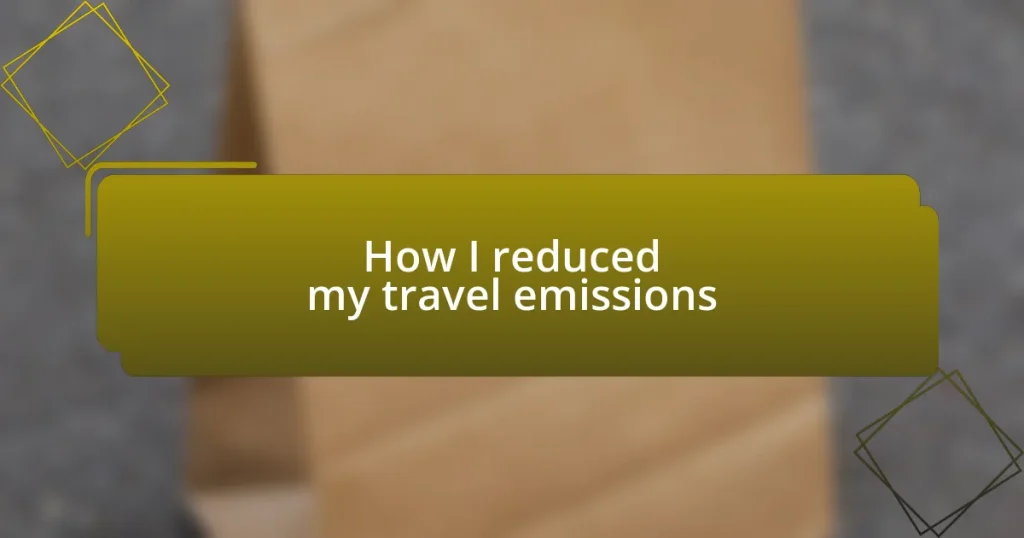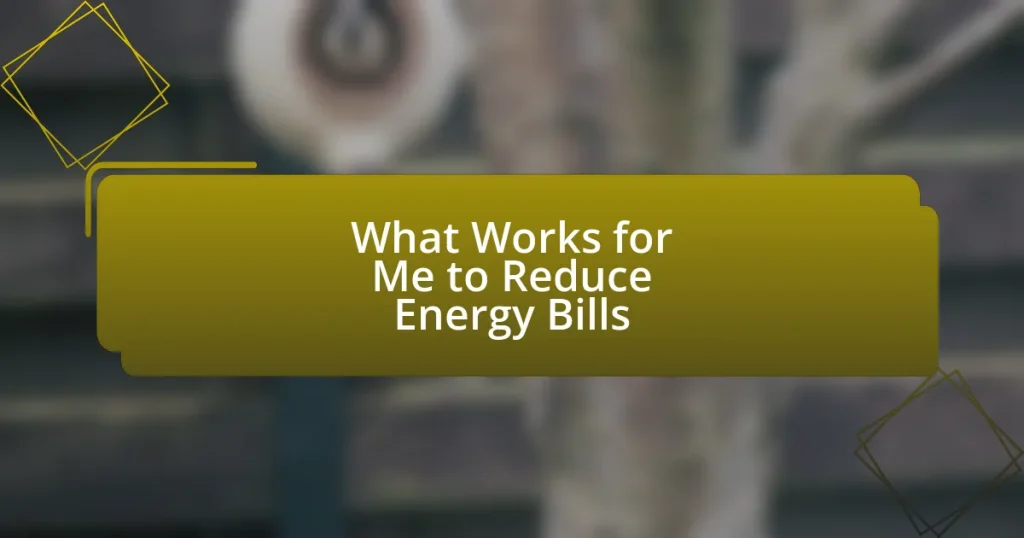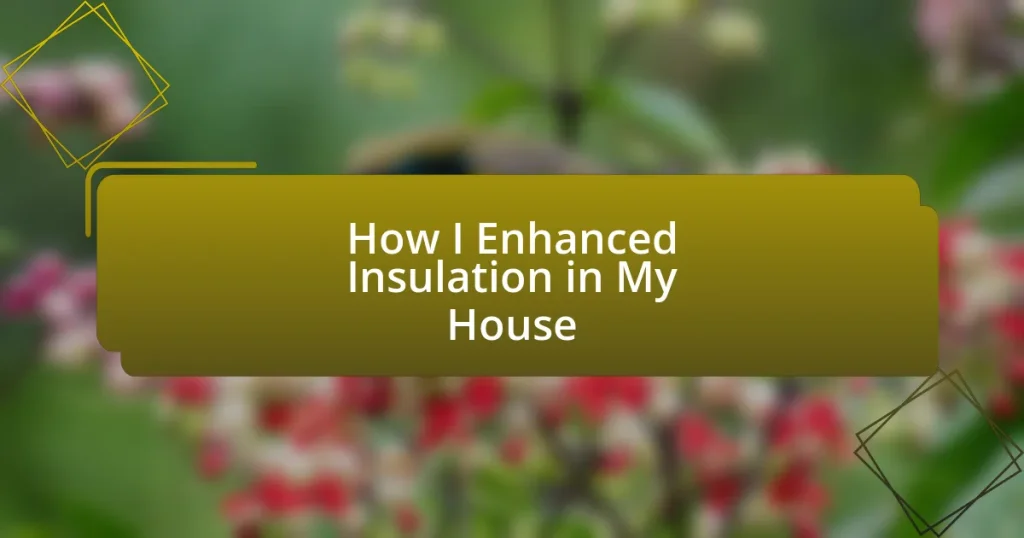Key takeaways:
- Bamboo products are sustainable, rapidly renewable, and have unique benefits such as antibacterial properties.
- Choosing bamboo can contribute to significant environmental benefits, including oxygen production, low water usage, and effective carbon sequestration.
- Various bamboo products, from toothbrushes to furniture, provide eco-friendly alternatives to conventional items, promoting responsible consumption habits.
- Not all bamboo products are created equal; it’s essential to choose high-quality and ethically sourced options for true sustainability.
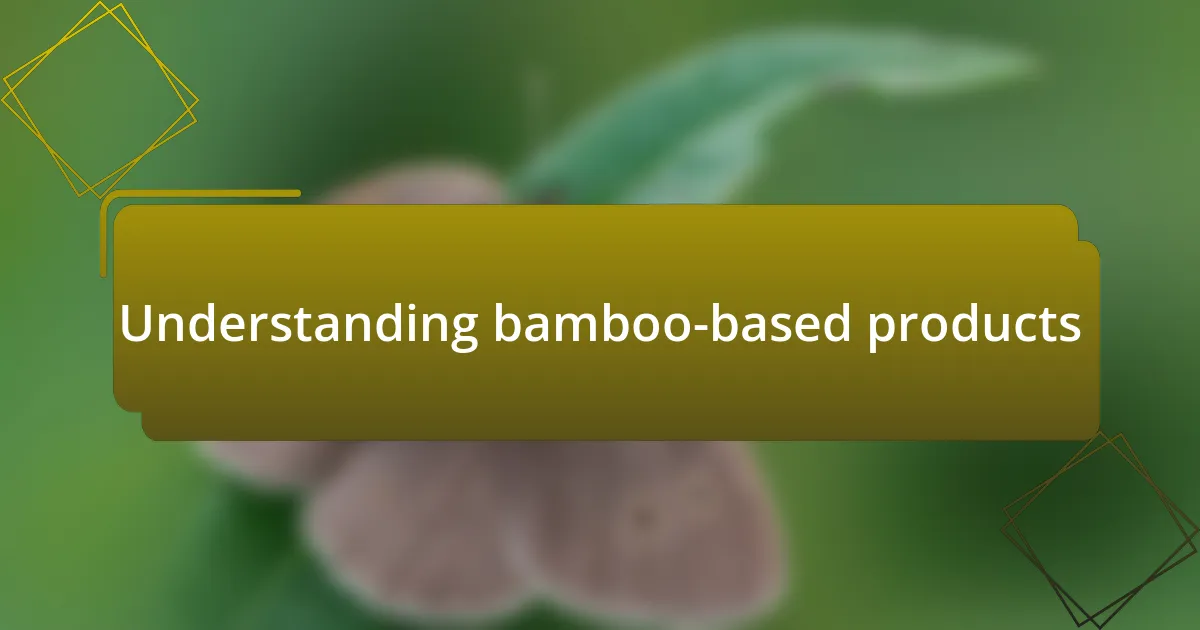
Understanding bamboo-based products
Bamboo-based products are rapidly gaining popularity due to their sustainability and versatility. I remember the first time I used a bamboo toothbrush; it felt good knowing I was making a small change for the planet. Have you ever considered how something as simple as a toothbrush could impact our environmental footprint?
One fascinating aspect of bamboo is its incredible growth rate—it can reach full height in just a few months! This rapid renewability not only makes bamboo an eco-friendly option but also offers an abundance of material for various products. I often find myself marveling at how nature provides such sustainable solutions, don’t you think?
Additionally, bamboo has natural antibacterial properties, which surprised me when I first learned about it. I was skeptical about using bamboo fabric for clothing, but after trying it, I was impressed by its softness and breathability. Have you explored different types of bamboo products? Each one brings its unique benefits, from home goods to personal items, enhancing our daily lives while being kind to the Earth.
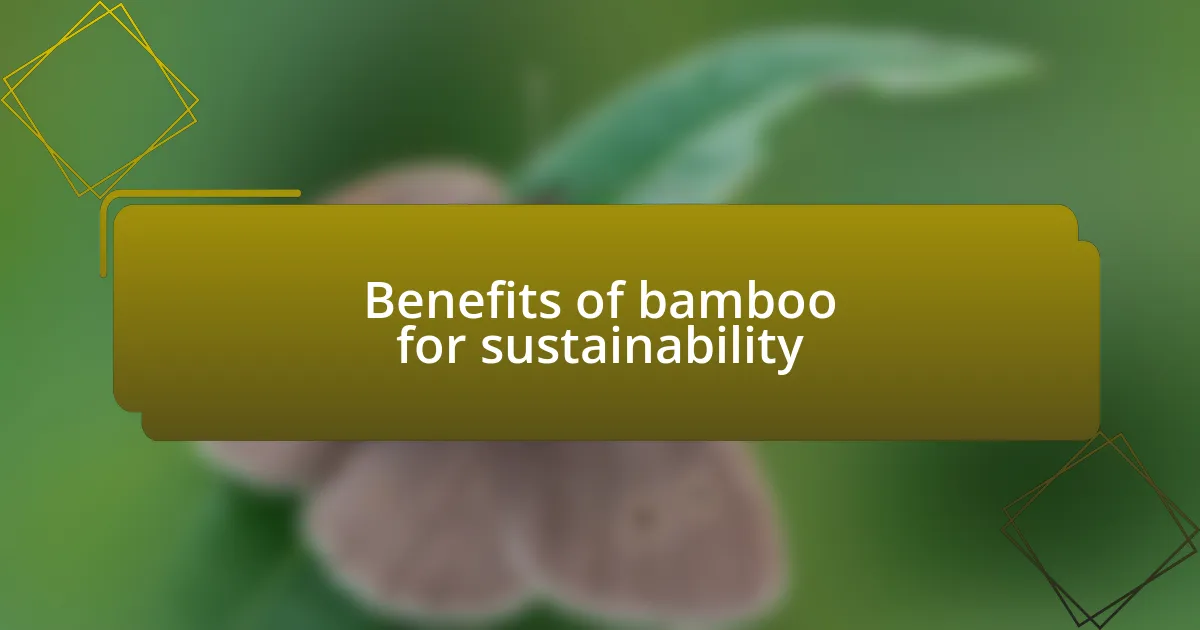
Benefits of bamboo for sustainability
Bamboo is truly a remarkable plant when it comes to sustainability. I recall my visit to a bamboo plantation, where the sheer amount of biomass and rapid growth struck me. It’s awe-inspiring that bamboo can produce 30% more oxygen than trees, making it an excellent choice for combating climate change. Have you ever thought about how small shifts in our consumer habits, like choosing bamboo, can collectively lead to significant environmental benefits?
From a practical standpoint, bamboo requires much less water than traditional crops. During a conversation with a farmer who switched to bamboo cultivation, he shared how the reduced water demand helped him save on irrigation costs and improved his soil’s health. I felt inspired by his transformation, as it highlights that bamboo not only sustains the environment but also uplifts local economies. How cool is it that choosing bamboo can support both sustainability and entrepreneurship?
One of the most impressive sustainability benefits of bamboo is its ability to sequester carbon effectively. With climate change dominating many discussions today, I often reflect on my commitment to reducing carbon footprints. Using bamboo products in my daily life feels like a proactive step in that direction. It’s reassuring to know that each bamboo item I choose contributes to a more sustainable future.
| Benefits of Bamboo | Impact on Sustainability |
|---|---|
| Rapid Growth Rate | Produces more oxygen than trees |
| Low Water Requirement | Conserves water resources |
| Carbon Sequestration | Reduces overall carbon emissions |
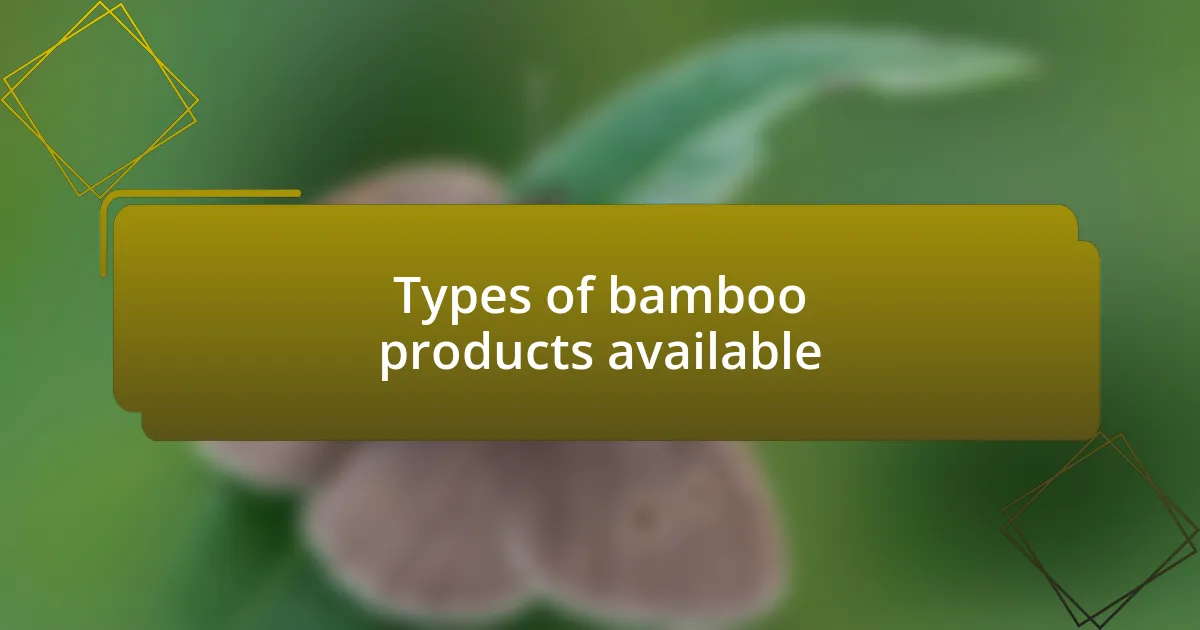
Types of bamboo products available
Bamboo products come in a variety of forms, each one offering unique benefits and practical uses. I vividly remember the first time I unwrapped a bamboo toothbrush; it felt good to hold something that was not only making a positive impact on the planet but also worked just as well as conventional options. Using bamboo in place of plastics, especially for everyday items, can create a meaningful shift in how we think about our consumption habits.
Here’s a glimpse of some bamboo products available on the market:
- Bamboo Toothbrushes: Eco-friendly replacements for plastic toothbrushes.
- Bamboo Utensils: Sustainable alternatives to plastic cutlery.
- Bamboo Clothing: Soft, breathable fabrics made from bamboo fibers.
- Bamboo Furniture: Stylish and durable furniture pieces that reflect eco-conscious living.
- Bamboo Straws: Reusable straws that help minimize single-use plastic waste.
- Bamboo Sheets and Towels: Luxurious, hypoallergenic textiles that promote better sleep and comfort.
- Bamboo Flooring: A sustainable option for home interiors, offering a unique aesthetic.
Each time I use a bamboo product, I feel a personal connection to the broader movement of sustainability, reminding me that even small choices can lead to significant changes. It’s heartening to think that my preferences can contribute to steering industries toward more responsible practices.
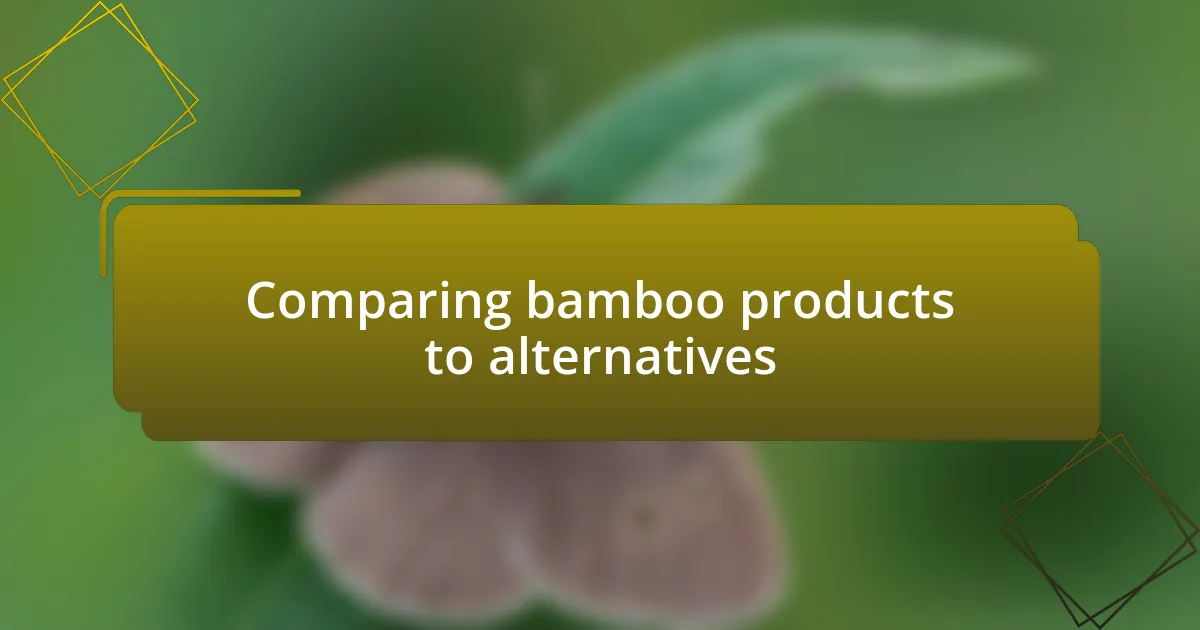
Comparing bamboo products to alternatives
When comparing bamboo products to their conventional alternatives, I often think of the moment I swapped my plastic utensils for bamboo ones during a camping trip. The feeling of the lightweight bamboo in my hand was a refreshing change, and I couldn’t help but appreciate how sturdy and stylish they made my outdoor dining experience. Unlike plastic, which often ends up in landfills for centuries, bamboo utensils decompose naturally, leaving no trace behind.
Many people wonder if bamboo is as durable as traditional materials. From my experience, using bamboo clothing and sheets has been a revelation. They not only provide the same, if not better, comfort but also give me peace of mind knowing I’m choosing a biodegradable option over petroleum-derived synthetic fibers. Isn’t it reassuring to realize that what we wear and use can be kind to the planet as well?
While I’ve had great experiences with bamboo, it’s essential to consider that not all bamboo products are created equal. Some brands cut corners in sustainability practices, which can overshadow the positive aspects of bamboo itself. I urge everyone to research and select high-quality, ethically sourced bamboo products, ensuring that our choices genuinely reflect our values. After all, isn’t it fulfilling to invest in items that serve you well while also promoting environmental stewardship?












